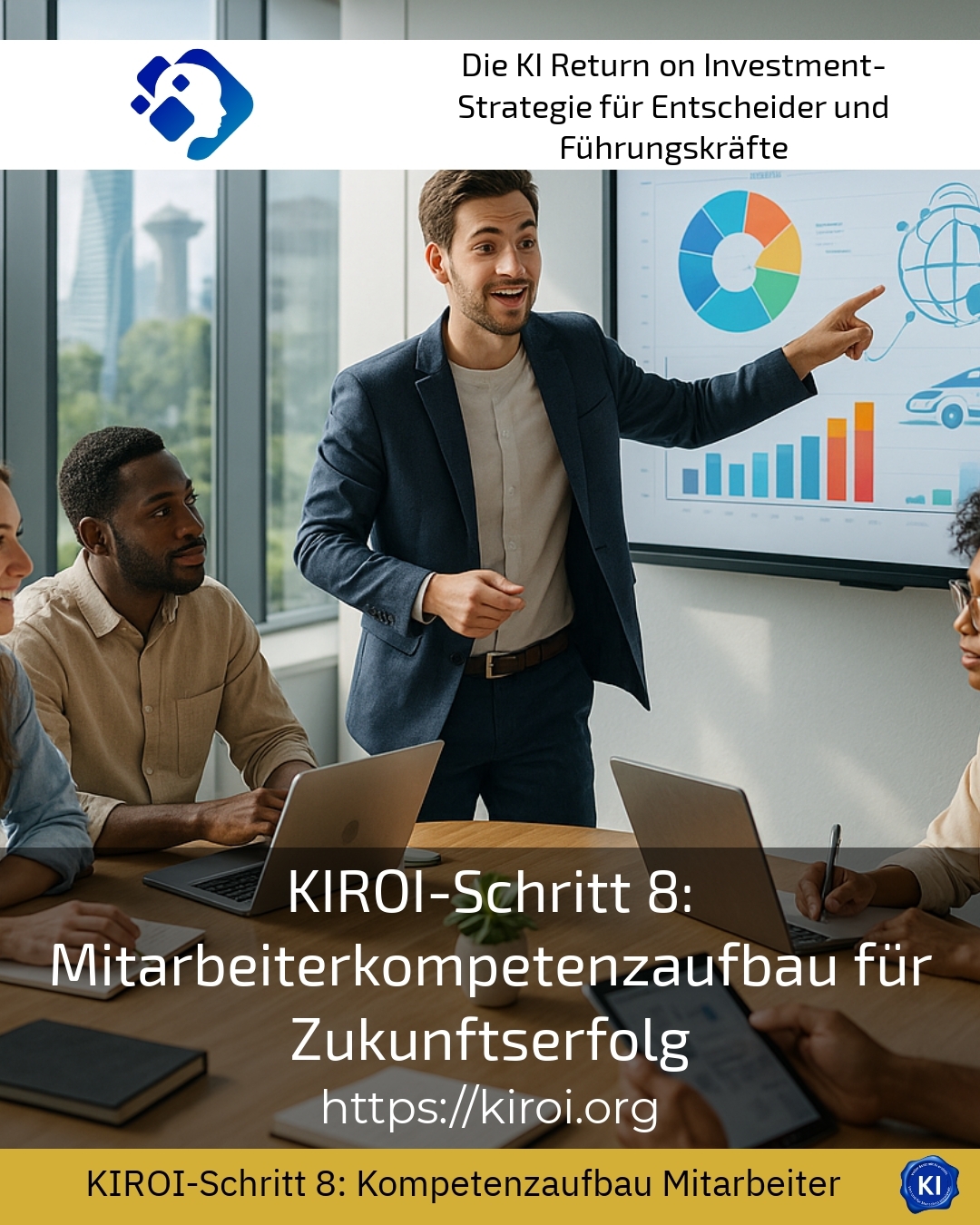The importance of employee competence development for sustainable corporate success
Building employee competences is a key factor when it comes to preparing companies for future challenges and strengthening the motivation of the workforce at the same time. Individual and systematic development measures for employees are indispensable, especially in a working world characterised by digitalisation and continuous change. The development of competences helps to exploit potential and promote new skills in a targeted manner.
Strategic planning for employee competence development
The development of employee competences begins with a clear analysis of requirements that is aligned with the company's long-term goals. This is the only way to specifically identify the competences required for future projects or market requirements. Companies often develop competency models that serve as a framework. Development plans for individuals or entire teams are created and measures defined on this basis. This provides employees with orientation and enables sustainable development in equal measure. This creates a learning culture that favours continuous growth and at the same time retains talent within the company.
Practical methods for building employee competences
Expertise is built up on several levels, which complement and interlock with each other. Learning by doing plays a prominent role. Through project work, job rotation or on-the-job training, employees gain practical experience and deepen their skills directly in their day-to-day work. This is supplemented by individual coaching and mentoring, which offer targeted support and promote personal strengths. Workshops and seminars are also essential for expanding theoretical knowledge and familiarising employees with new approaches. A balanced interplay of these methods optimally supports different types of learners and ensures sustainable skills development.
KIROI BEST PRACTICE at company XYZ (name changed due to NDA contract)
As part of a new product development project, KIROI supported the company in specifically promoting the development of employee competences. The employees first completed individual skills analyses. Practical workshops and accompanying coaching sessions were then organised. At the same time, the teams were given insights into neighbouring areas of responsibility through a job rotation model. This combination of theory and practice has led to the employees sustainably expanding their skills and actively contributing to the success of the project.
Building employee expertise as an ongoing process
Successful skills development must be regularly reviewed and adapted. Learning does not end after individual training sessions, but is a continuous process that can be integrated into everyday working life. The 70:20:10 rule is a helpful concept, which states that a large part of skills development takes place through practical work. 20 per cent of learning comes from exchanges with colleagues or coaches, while ten per cent is covered by formal training courses such as seminars. This mix enables companies and employees to respond better to current requirements and develop the skills they will need in the future.
KIROI BEST PRACTICE at ABC (name changed due to NDA contract)
To improve agility in sales, KIROI introduced a blended learning programme together with the company. In addition to digital seminar content, employees received regular feedback from coaches and worked on practical tasks in mixed teams. This approach supported the sustainable development of consulting and communication skills and also strengthened team cohesion.
Role of managers in competence development
Managers play an important role by acting as mentors and actively supporting development steps. They provide impetus, create learning incentives and help to integrate newly acquired skills into everyday working life. Their recognition and support motivate employees to continuously develop themselves further. In addition, regular feedback can ensure that learning goals are achieved and challenges are addressed. This creates a supportive environment that effectively promotes the development of employee competences.
KIROI BEST PRACTICE at DEF (name changed due to NDA contract)
In a manufacturing company, KIROI supported several managers in developing their skills as mentors. Through targeted training, they were able to better support employees in the introduction of new digital tools. The tangible feedback from the teams showed that this support contributed to greater acceptance and use of the new technologies, thereby optimising operational processes.
My analysis
Building employee competences is an indispensable tool for preparing companies for future challenges and motivating employees. A systematically planned and multi-layered development approach that combines practical experience, coaching and further training has proven its worth. Managers play a key role as guides and supporters. In particular, adapting to individual learning styles and combining company goals with personal development wishes promotes long-term success. KIROI support provides valuable impetus in this process, supports projects and promotes sustainable skills development without making unrealistic promises.
Further links from the text above:
[1] Employee development: 4 tips to develop competences in your ...
[2] Future skills requirements: the role of companies
[4] Successful skills development: 9 tips and 3 ...
[5] Successful employee development: 14 strategies & tips - onesome
[7] Skills development: definition + successful examples
For more information and if you have any questions, please contact Contact us on the topic or read more blog posts on the topic Artificial Intelligence Blog here.















